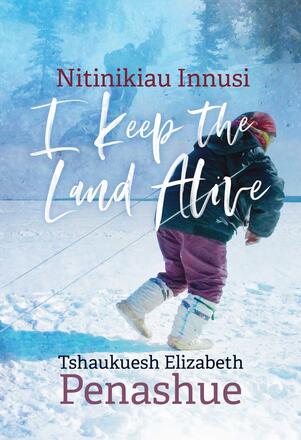
Nitinikiau Innusi
I Keep the Land Alive
La description
Born into a traditional nomadic family, Tshaukuesh Elizabeth Penashue came to international attention in the 1980s and 1990s when she led protests against NATO’s occupation of Innu land in Labrador. To promote the Innu cause, she spoke to audiences across Canada and Europe, went to jail, and testified before the International Human Rights Tribunal in The Hague. She became a heroine to many for her fight for the environment and Indigenous rights.
Reviews
"The memoir illustrates the range of experiences and emotions that Penashue confronts and endures while advocating for Innu lands; at the same time, the memoir also makes clear that these lands form the author's sense of identity. The most salient theme throughout the book is the conception of land not as an object or commodity but as the central being through which all is connected and made possible. Indeed, Penashue's activism and advocacy for Innu culture is intimately wrapped up with how the land is identified and what the land does. People are not separate from the land; rather people work either for or against the land, which makes Penashue's memoir and activism a touchstone text for land protection and Indigenous resistance. "
- Esme G. Murdock
"Penashue brings readers into her world and allows them to see life from an Innu perspective. "
- Maura Hanrahan
"In blunt and sometimes deeply poetic language, Tshaukeush narrates the relationships that have enriched her life and fostered her life’s work. She speaks about her relationship with the land and the plants and animals that have provided sustenance for the Innu since time immemorial. […] Unsettling and difficult, life-affirming and joyful, this text and its fundamental message are urgently needed to challenge continuing colonization in Tshaukuesh’s community and all of our communities. "
- Vicki S. Hallett